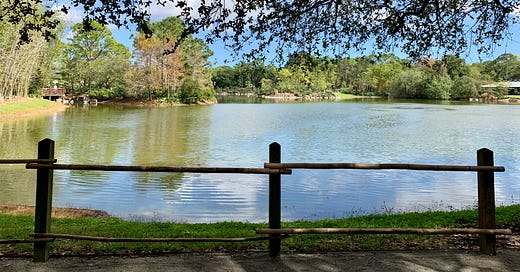The world is overstuffed with people who are very sure of their own opinions and completely dismissive of those who disagree. Everywhere we turn, people are climbing onto their soapboxes and shouting their beliefs in the direction of anyone who will listen. It's no surprise that we can turn on the television and predict just what commentators will say before they even utter a word.
Certainly it’s good to ponder the world, to try our best to make sense of what is happening all around us. It’s helpful to know where we stand and what we stand for. But when our opinions grow crusty and rigid, when we find ourselves digging in our heels to defend ourselves, we move into a space of alienation and judgment. We contract around our own ideas. We slip into that dangerous delusion of us-versus-them. And as we do so, another window in our heart slams shut.
Perhaps we would be well-served to be suspicious of our own long-held beliefs, especially those we hold most dear. Perhaps we might consider avoiding the tendency to reflexively dismiss the opinions of others, especially those with whom we disagree. Perhaps we could grow more curious about the opinions of others and less set on defending our own.
Pope Francis has been known to offer up the question, “Who am I to judge?” when asked his opinions about the actions of others. Perhaps we could adopt this mantra as we move through each day. Perhaps we would be wise to pause when we find ourselves spouting our thoughts about what is right or wrong, who is right or wrong, what will surely happen or what will never happen. Maybe we can even consider the possibility that we may not be as right as we think and that we may not know as much as we wish.
We might consider the possibility of living with a looser grip on our beliefs. Perhaps we may even try out living in a space of not knowing, of not being so sure of ourselves. Philosopher John Keats coined the phrase "negative capability" to describe this space, a place of resting comfortably in a state of not knowing, without grasping after a conclusion. At the very least we might rest in a place of wondering rather than judging, of being more curious than certain.
And we might also hold close the philosopher J. Krishnamurti’s assertion that the highest form of intelligence is the ability to observe without judging. Can you hear a sound without judging it good or bad? Can you listen to a speech without hurrying to decide what you think of it? Can you resist the temptation to tell loved ones they are right or wrong in what they think or do? And can you watch someone walk through the door without offering up an internal commentary about whether that person is lovable or despicable, an ally or a threat?
When we start paying close attention, we may be surprised by how much of our brains are cluttered with tired opinions and proclamations about the world. After taking a closer look, we may be astonished by how much time we spend opining about others. And we may find that the question of the day - Who am I to judge? - softens us just a bit, making room for humility to nestle into our heart and for empathy to begin to grow.
We may also find that we can fill the brain space that was once devoted to nonstop judgment with more beautiful glimmerings of life. With the sound of birdsong, for example, or that stretch of light that falls across the tabletop in so perfect a way. The warm hand of a child or the soft shoulder of a spouse. The feeling of love welling up when we contemplate the depth of our devotion to those around us.
It can be such a relief to simply love the world – even with all of its aches and pains – instead of getting caught up in evaluating every last morsel of life that passes before us. It feels softer, gentler, deeper. It feels a little more vulnerable, for sure, as the ground beneath us begins to feel a little less solid. But surely through this exploration we will grow more open to the questions of life and to the raw experience of being alive in our beautiful and mysterious world.
Let’s try questioning our thoughts. Let’s rest in the mystery without having to be so sure. Let’s listen to others instead of judging them. Let’s consider the possibility that even when we disagree we can still be on the same side of life. Let’s widen our minds and our hearts to welcome – or at the very least acknowledge – the words, thoughts and actions of others. Let’s offer a little tenderness and warmth to the conversation of our lives.




Dave: Let’s read this again next Sunday and see how successful we were able to implement all these wonderful suggestions.